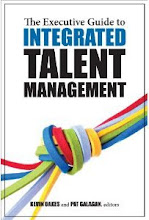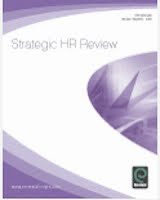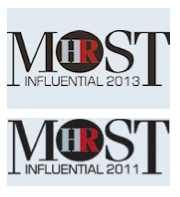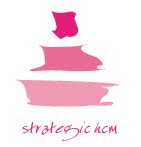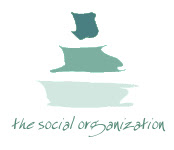I met up yesterday with Arvind Hickman, Editor of HR Magazine, to talk about the Art of HR conference I’m organising, and will be chairing, and at which he’ll be speaking at as well. Arvind mentioned he was keen for further promotion of this year’s HR Most Influential (HRMI) programme which sets out to identify influential thinkers and I’m happy to support!
In fact I’ve already made my suggestion for Anthony Hilton’s City Column at the Evening Standard.
I should explain that this year Arvind is looking for suggestions of written work which supports a thinker’s thought leadership. Now I often challenge the magazine’s methodology and will do so again now - most HR people aren’t influenced via written work but by face to face, small group and one-on-one conversation. (That’s why I’m not blogging here so heavily anymore but am putting much more time into running training sessions and getting in front of people at small group events.)
You may disagree with me, and of course, you are reading this here. But you’re the exception. Certainly in my experience most senior HR people don’t read books, magazines or blogs (perhaps just mine), don’t go to conferences (perhaps just Art of HR hopefully!) and in fact vastly underinvest in their own capability development. I shared this view with a group of suppliers in a panel for the Learning and Performance Institute (LPI)'s Learning Directors Network meeting yesterday afternoon and most people there seemed to have had similar experience of practitioners in Learning & Development at least.
I think it’s a problem. As was suggested yesterday afternoon, we’ve got to a situation where many in the workforce - business leaders and line managers in particular - are putting more effort into their own learning than HR people whereas it ought to be the other way around. But for as long as this remains a situation, influential HR thinkers need to find different ways to communicate their ideas. (Of course this isn’t going to stop places like Ashridge writing books assuming that HRDs will read them, or even from developing research on influence, like the HMRI survey, around written thought leadership, even if this isn’t really how influence takes place.)
However this year’s methodology is what it is and that’s why I’ve nominated Anthony Hilton. This is down to two or perhaps three things. First up is that although Hilton isn't an HR journalist, he writes what I think is some great work on HR topics, amongst other things (and which I tend to agree with.)
My second reason for suggesting Hilton is about the place where he publishes his writing. If HRDs don’t read blogs or HR publications (I would have written ‘HR Magazine excepted’ but actually even they didn’t come off that well in the LPI research we looked at in the afternoon) then we need to take HR thought leadership to HRDs, and the Standard is about the best place you’re going to find many of them. I suspect that because of this Hilton has more
influence than just about anyone else I could think of (Lucy
Kellaway came to mind briefly but most I don't think most HRDs read the FT either.)
Then finally is that, although I do like to read the Standard, I'm not a fan of the paper’s London-centric, Boris Johnsonite agenda as I think this panders too much to residents of the city and forgets about the views of those of us who are regular but temporary visitors (and who probably get to spend longer reading the newspaper.) So I’m particularly impressed that even within this editorial context, Hilton makes such well articulated, highly appropriate and important challenges to poorly designed elements of reward and other aspects of employment which are generally found most commonly within the City (excessive bankers’ bonuses and CEOs’ pay awards etc.)
In conclusion, I hope I've influenced you to read of some of Hilton’s posts. And if you don’t get a chance to pick up a copy of the Standard, or if you worry like me about the environmental damage all of these freebie newspapers are having, then you can read them here as well.
And I do hope you will have a think about who you personally find influential. What book, article or piece of academic work has influenced you this year? And once you’ve thought of something, do let HR Magazine know.
Finally, if you didn’t find it easy to think of several influential thought leaders then you’re not opening yourself to enough new ideas. I suggest you need to change this right now. HR is racing along into a completely new way of operating (S curve) and we need to question ourselves and learn new things faster than we’ve ever done before. We all need to be identifying the influential thought leaders and then following their work - which is why, despite my reservations, I do think HRMI is a useful piece of research.
- Consulting
- Research - Speaking - Training - Writing
- Strategy
- Talent - Engagement - Change and OD
- Contact
me to create more value for your business
- jon
[dot] ingham [at] strategic [dash] hcm [dot] com





